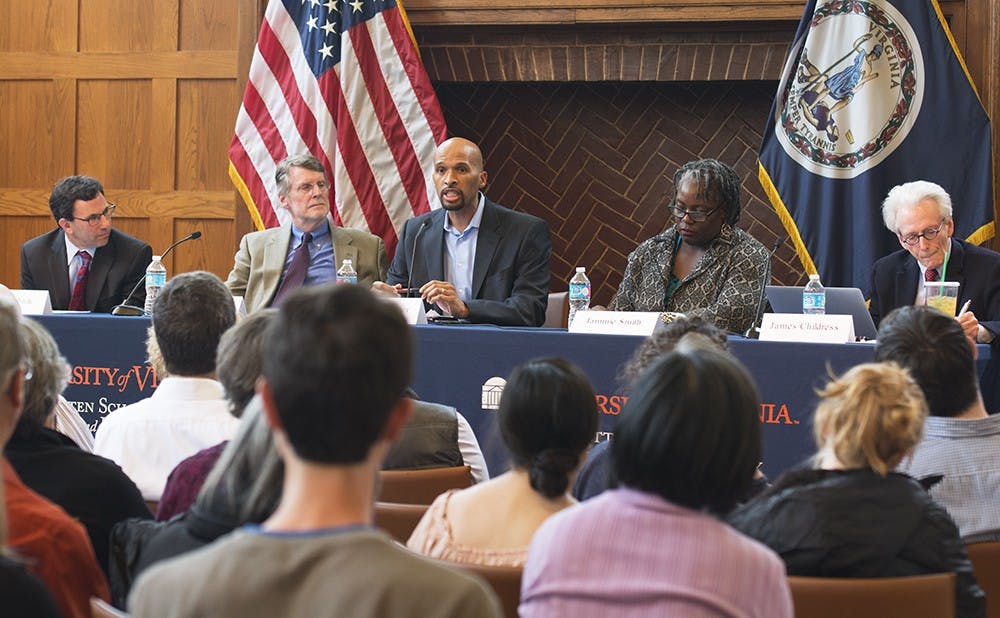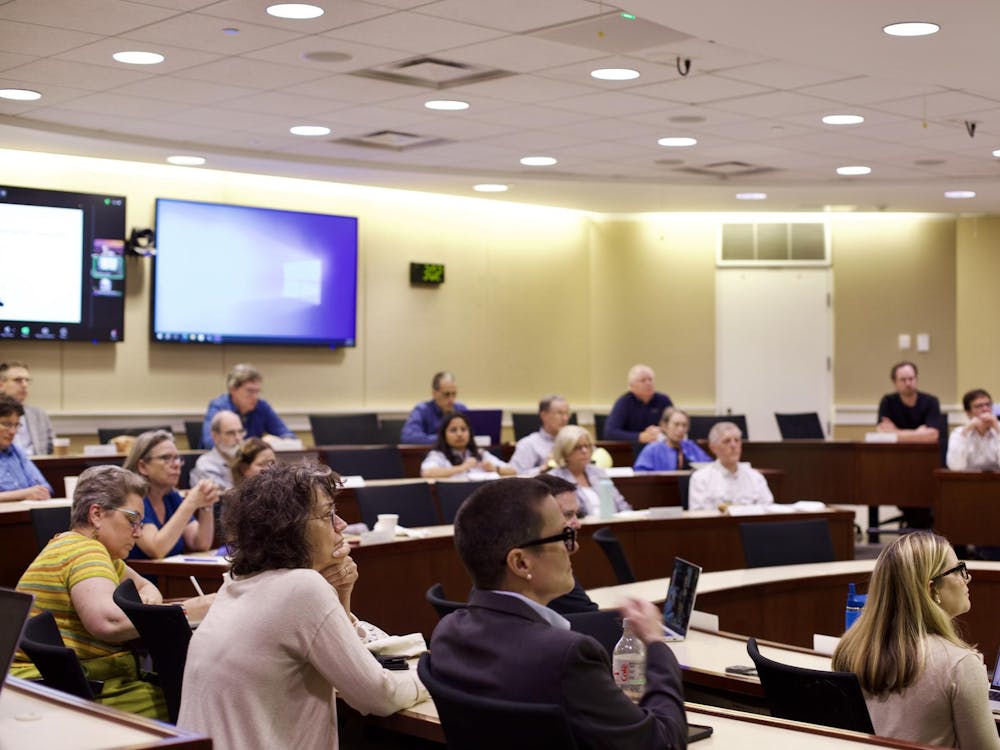The Batten School hosted an event Wednesday afternoon discussing health disparities and the implications of class, race and location, among additional social determinants, in regard to health issues and access to care in Virginia.
The event was cosponsored by The Miller Center of Public Affairs and the Department of Public Health Sciences and featured a panel of University and visiting professors, physicians and journalists.
Among the speakers was Michael Royster, vice president of the Institute for Public Health Innovation, who said Virginia experienced similar health disparities to the rest of the United States.
“There’s significant disparities by race and ethnicity, socioeconomic status [and] geographic region,” Royster said. “There’s disparities as you look at individuals with disabilities, and even as we begin to learn more about LGBT populations and sexual minorities, we realize that there are inequities in terms of health outcome.”
Royster said it is important to talk about the difference in health issues among different populations because although America is often described as a country of opportunity and freedom, many people have found this isn’t always the case.
“There are groups of people that are systematically disadvantaged in terms of achieving not only their health potential but their overall potential,” Royster said. “In terms of our values as a country, it’s important that we realize and address the inequities that exist.”
Royster said he is especially interested in how policy can affect health disparities and the communities and populations that experience these disparities.
“When I got interested in the medical field, I gravitated towards more of this issue of health disparities, and how we can address those poor health outcomes that many people experience,” Royster said. “A strong interest in policy … led me to really wanting to incorporate an understanding of … how ultimately the broader policies that our elected officials make, that our organizations and institutions function by, how they shape health outcome.”
Other speakers included James Childress, a University professor of Religious Studies and director of the Institute for Practical Ethics and Public Life; Tammie Smith, healthcare journalist for the Richmond Times-Dispatch; and Gary Burtless, Whitehead chair in Economics for the Brookings Institute.
Batten graduate student Peter Hawes said he was interested in how this event focused on the issues of marginalized groups in Virginia. Because he is not studying healthcare policy, he attended this event to look at issues of class from a different perspective.
“[My interest is] poverty litigation,” Hawes said. “It’s about connecting my interests, looking at it in different contexts, and broadening my knowledge on the issues.”
Batten graduate student Kaitlyn Howard said she thought the event was being held at an interesting time in Virginia politics.
“I think it’s really timely to have this talk today especially as we continue to debate things like Medicaid expansion … especially in Virginia,” Howard said. “I’m glad that the Batten School has focused on this issue and took the initiative to have this panel.”







